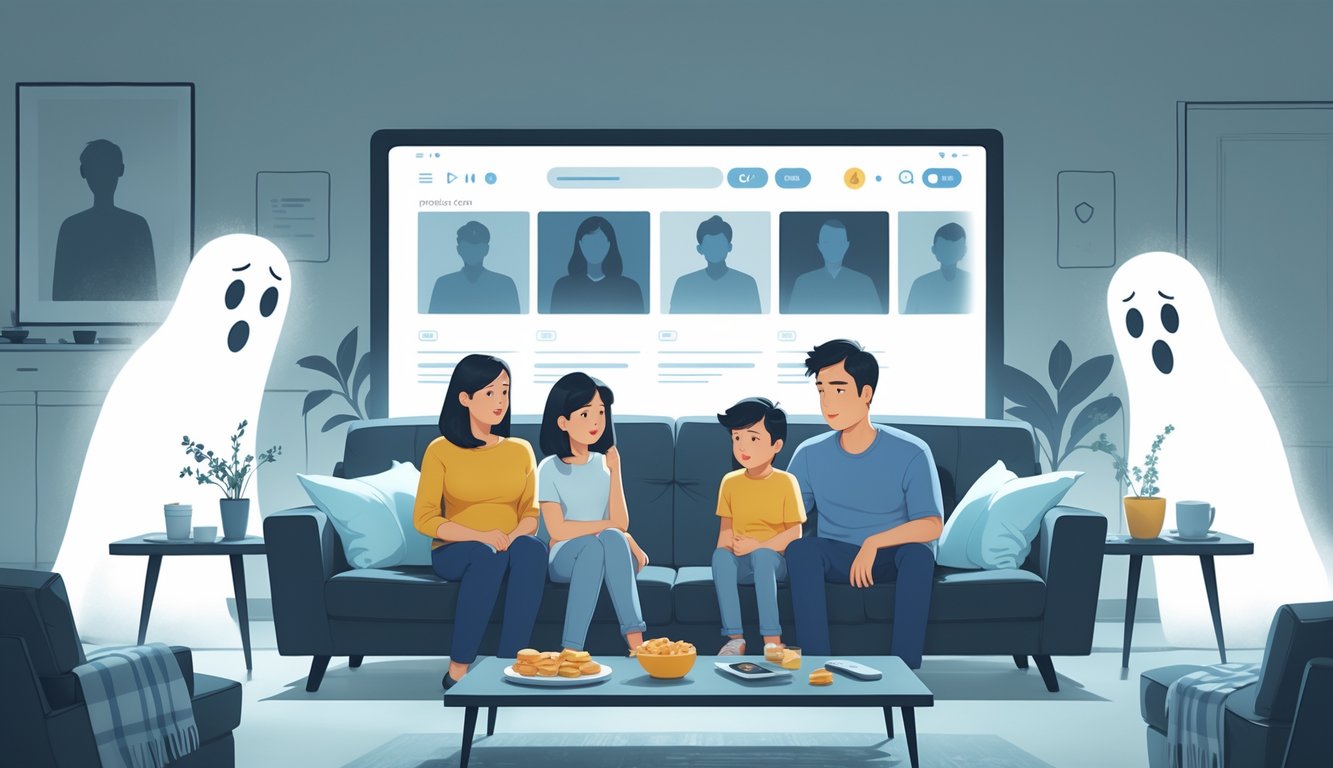
Safeguarding Family Experiences Online
Every parental control I’ve used has glitched or just stopped working, which gets especially fun when it’s movie night and someone’s uncle is texting spoilers. Kids click stuff—everyone does—especially when something looks harmless but somehow leads to PayPal. Messed-up recommendations stick around forever, and I’ve seen families try to “reset” the profile because some cartoon rabbit started recommending R-rated thrillers. Not even kidding.
Setting Up Safer Family Profiles
Setting up a “child safe” profile? I laughed out loud when my niece bypassed one with a voice command. Strong PINs? Four digits, instantly forgotten by grandma. Only thing that works is two-factor authentication, and my dad uses his dog’s birthday for everything. I once found a toggle to disable ad targeting—it was so buried, I felt like I’d found a cheat code.
Platforms love to show off “Family Mode,” but the real move is to dig into privacy and kill personalized recommendations. I always turn off “continue watching for everyone” so a toddler’s Paw Patrol binge doesn’t haunt me forever. UNICEF says kids get bombarded with manipulative ads, so I keep profile data to a minimum and revoke microphone rights. Yes, streaming apps listen even when they’re “off”—my phone started recommending vacuums after one conversation.
Encouraging Open Family Communication
My attempt at a “family meeting” about safe streaming? Derailed in minutes. My cousin ranted about her show disappearing and the kids just tuned me out. Kids won’t report weird messages—they’ll just try to fix it and end up logging in with my email. An expert told me regular, non-judgy check-ins work better than any tech fix, but how do you do that when nobody listens and the remote’s missing?
I list “red flags” (pop-ups, password requests, sketchy offers) but everyone zones out. A printed list taped inside the TV cabinet gets more attention than any app alert. The only thing that actually sticks: tell kids they’re not in trouble for speaking up… unless they ordered “Fast & Furious 9” on pay-per-view. That led to an actual security lesson, so maybe it wasn’t a total loss.
Balancing Entertainment and Wellbeing
Nobody mentions how much streaming platforms track screen time—unless you already have insomnia. I tried Netflix’s “screen time management” and it lasted until the holidays, because the timer only counts playtime, not browsing. Setting limits? Prepare for negotiations. I tried “one movie per night,” but the kids just switched profiles. Not in the manual.
Some advice says to layer downtime features with manual timers or tracking apps. A security guy told me to use both parental controls and analog clocks, which, honestly, keeps me in check too. The more I micromanaged, the more my family found new platforms, so now I mix streaming with offline stuff. ScienceDirect says a lot of sketchy things happen outside profiles—private messages, random platforms—so screen time limits only go so far.
Family wellbeing isn’t about blocking every risk. It’s about keeping entertainment fun, not compulsive. There’s no magic fix. Sometimes, when the system asks if I want to “add another member,” I just say no. Even if everyone promises they’ll remember their password this time.
Frequently Asked Questions
Passwords slip, profiles multiply, and suddenly I’m staring at names I don’t recognize. I’ve lost count of how many times “family-only” setups turn into a logistical nightmare, and well-meaning sharing creates legal gray areas nobody wants to talk about.
How can I protect my account from unauthorized users creating profiles?
I lock down one profile, blink, and there’s a cartoon avatar I’ve never seen. A cybersecurity panel last year said strong, unique passwords barely slow people down, but two-factor authentication actually helped. My friend swears by LastPass, but someone always forgets to log out at grandma’s. Does it matter if she accidentally creates a profile? Maybe.
What are the legal implications of sharing my streaming service password?
This is a mess. I skimmed a 2023 analysis and there’s always a clause about password sharing violating terms—sometimes even criminal laws, depending on where you live. My lawyer friend says, “Technically, they could kick you off, but prosecutions are unicorns.” Who reads the end-user license agreement anyway? Not me.
Why am I seeing unfamiliar profiles on my streaming account?
Ex-roommates, random cousins, anyone who’s ever borrowed your login—those profiles linger like bad leftovers. Some platforms don’t notify you, and sometimes entire sub-accounts pop up after holidays. Third-party apps might remember old logins. I tried clearing “all devices” once and spent hours trying to get back into my own TV.
What steps are streaming platforms taking to prevent password sharing?
Netflix is desperate to stop losing money, so they started device verification and “household” checks. Hulu throws pop-ups about too many users. Some platforms block access if they see one account in too many countries at weird times. I read somewhere in industry coverage that companies know about multi-household sharing, but the crackdown is all over the place. No one really knows what’ll happen next.
How can sharing my streaming account impact service quality for my family?
Ever tried to watch a movie with your kids and see “too many devices” or find their cartoon replaced by someone else’s horror picks? Parental controls are pointless when a dozen profiles each have their own baggage. Video quality drops, recommendations get weird, “continue watching” lists fill up with stuff I hate. Three tech support chats later and I’m told to “sign everyone else out”—I’d rather not.
What are the possible consequences of multiple households using one family profile?
So, picture this: I log in and, boom, my homepage is just wall-to-wall anime. Stuff I have zero memory of ever watching. Did my cousin’s roommate binge “Demon Slayer” on my account again? Probably. I mean, who even gets these recommendations anymore? I found this study from the Parents Television Council—yeah, I know, they’re dramatic, but they’re not wrong—basically saying mature-rated junk just floods in (see their study). Parental controls? Sure, but if your brother’s kids are on your profile, your own kids might stumble on something you’d never approve. And then there’s the mess of random device bans, account lockouts, those weird “security” emails at 2 a.m. I’ve had it all happen, sometimes just because I let someone log in over the holidays. Does saving a few bucks even make sense at this point? No clue. Maybe it did before, but now? I’m just tired.



